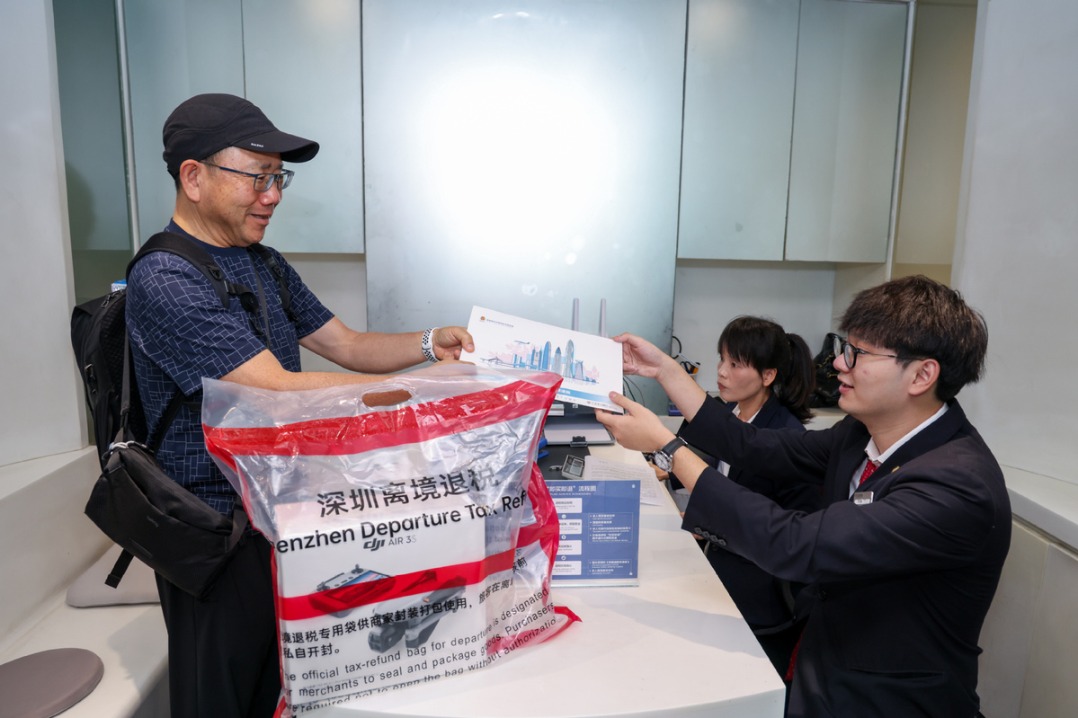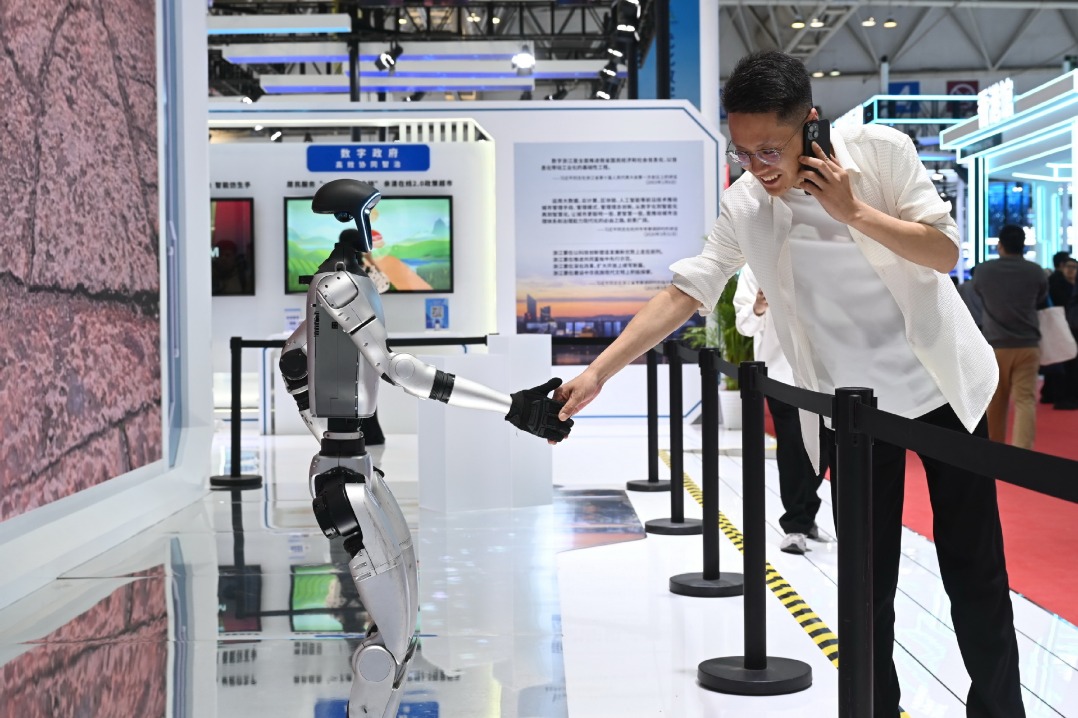Shanghai all set to launch robotaxi tests


Shanghai will launch a public testing program for its driverless taxi services as soon as next week, marking a step forward in the city's pursuit of intelligent and connected autonomous vehicle applications.
Shanghai officially issued the first permits for demonstration applications of the driverless vehicles to four companies on July 4.Over the past two weeks, autonomous driving companies have been preparing and fine-tuning their systems before initiating the public testing, which will be free of charge to citizens.
The designated testing area for the driverless taxi pilot program spans 68 square kilometers in Shanghai's Lin-gang Special Area in Pudong. Through a dedicated mini-program on WeChat, users can locate and access the designated pickup points marked with an "R" symbol.
Unlike the fully autonomous model currently operating in Wuhan, Hubei province, Shanghai's approach to the pilot program involves a safety operator in the front passenger seat of each car to respond to emergencies.
Once aboard, passengers can input the last four digits of their phone number on the vehicle's onboard computer, fasten their seat belts and tap the "depart" button to commence their journey.
In the rear cabin, passengers can view the driving route and monitor real-time traffic conditions, while also having access to a suite of amenities, including air conditioner control and entertainment options.
Early user experiences during the testing phase have been positive, with passengers reporting that they were highly impressed by the vehicles' ability to navigate challenging scenarios such as identifying roads without lane lines and maneuvering through narrow and sloping paths. It was also found that the vehicles' algorithms prefer infrequent lane changes throughout the journey, prioritizing a smooth ride experience.
"Currently, the vehicles can handle over 90 percent of urban scenarios, making them even safer than novice human drivers," said Chen Guofa, quality and operations director at SAIC AIlab Technology Co Ltd, one of the companies involved in the program, to local media. "For the remaining scenarios, such as congestion or ambiguous traffic rules, we're developing improved game theory algorithms to ensure appropriate responses, rather than always yielding or remaining stationary in heavy traffic."
Chen said the initial public testing phase will involve five vehicles, with plans to gradually introduce more models and expand the fleet based on the performance of the driverless taxis during the trials. "Our company is currently testing the third-generation products, with plans to deploy over 40 vehicles by the end of the year," he said.
China's tech giant Baidu's Apollo Go autonomous ride-hailing service launched its first batch of driverless cars in Wuhan. Apollo Go now boasts a fleet of thousands of vehicles across China.
According to Baidu, Apollo Go has received over 6 million ride orders as of April 19, and its autonomous driving mobility service has expanded to over 10 cities, including major metropolitan areas like Beijing, Shanghai and Guangzhou and Shenzhen in Guangdong province, and Chongqing.
Compared to other ride-hailing platforms, Apollo Go generally takes longer for route planning and pickup times. Its per-kilometer rate is only three-quarters of regular ride-hailing platforms, and with temporary discounts, it can even reach half the cost, offering a value proposition for cost-conscious commuters.
This price advantage has not gone unnoticed, as shared posts from netizens in Wuhan reveal the appeal of the service. Such messages contain words like "inexpensive" and "affordable". One user shared a screenshot of his first driverless taxi ride, showcasing that after applying various coupons, a 14-kilometer journey cost a mere 2.3 yuan ($0.32).
However, this price advantage has raised some concerns among citizens about whether it could constitute unfair market competition through predatory pricing tactics. Wang Yunpeng, vice-president of Baidu, sought to address such concerns. "The initial purpose of developing driverless vehicles is not to take business away from taxi and ride-hailing drivers, but rather to better serve the public."





































